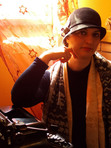Sarah Zama's Blog, page 50
August 3, 2017
Thursday Quotables – The Last Unicorn: The Lost Version
The smell of lightning filled the unicorn’s body. She said, “I know you. A thousand years ago, you came hunting a knight through my forest. I hid behind a tree, because I was a colt...
The post Thursday Quotables – The Last Unicorn: The Lost Version appeared first on The Old Shelter.
July 27, 2017
Thursday Quotables – Raisins and Almonds (Miss Fisher Murder Mysteries)
Phryne knew the signs. This was a maternal lioness on guard against a predator who was stalking one of her cubs. This could be borne, as Phryne knew that her intentions were honourable. However, if...
The post Thursday Quotables – Raisins and Almonds (Miss Fisher Murder Mysteries) appeared first on The Old Shelter.
July 21, 2017
The Mystery Blogger Award – July 2017
“Mystery Blogger Award” is an award for amazing bloggers with ingenious posts. Their blog not only captivates; it inspires and motivates. They are one of the best out there, and they deserve every recognition they...
The post The Mystery Blogger Award – July 2017 appeared first on The Old Shelter.
July 20, 2017
Thursday Quotables – Renaissance
“What I reckon is that pretty soon that light’s gonna go off and you gonna hop over here witcha man. I know you’re worried, but you know how the young ones get at this age;...
The post Thursday Quotables – Renaissance appeared first on The Old Shelter.
July 18, 2017
Nelson Mandela Day 2017
For to be free is not merely to cast off one’s chains, but to live in a way that respects and enhances the freedom of others – Nelson Mandela
The post Nelson Mandela Day 2017 appeared first on The Old Shelter.
July 13, 2017
Thursday Quotables – Promises Unbroken
His breath shook as he inhaled deeply. “You’ll have everything you’ve ever wanted; a home, parents who love you…you’ll get to go to college and everything.” He paused. “We can still write to each other…if...
The post Thursday Quotables – Promises Unbroken appeared first on The Old Shelter.
July 11, 2017
Blood Ties – A very classic short film noir
Apparently, finding information about this short film isn’t all that easy. It was released in 2006 after winning the Special Jury Prize and the Best Actor Prize at the AAU Film Festival of 2003. Produced...
The post Blood Ties – A very classic short film noir appeared first on The Old Shelter.
July 6, 2017
Thursday Quotables – Fatherland
He pulled out his wallet, took out the photograph. It looked incongruous amid the plushness of the restaurant – a relic from someone’s attic, rubbish from a flea market stall.
He gave it to her. She studied it. A strand of hair fell over her face and she brushed it away. ‘Who are they?’
‘When I moved into my apartment after Klara and I split, it hadn’t been decorated for years. I found that tucked behind the wallpaper in the bedroom. I tell you, I took that place to pieces, but that was all there was. Their surname was Weiss. But who are they? Where are they now? What happened to them?’
He took the photograph, folded it into quarters, put it back in his wallet.
‘What do you do,’ he said, ‘if you devote your life to discovering criminals, and it gradually occurs to you that the real criminals are the people you work for? What do you do when everyone tells you not to worry, you can’t do anything about it, it was a long time ago?’
She was looking at him in a different way. ‘I suppose you go crazy.’
‘Or worse. Sane.’
 Confession: I’ve been meaning to read Fatherland since it came out some 25 years ago. Time flies. And maybe because I’ve been wanting to read it for so long, I’m kind of disappointed.
Confession: I’ve been meaning to read Fatherland since it came out some 25 years ago. Time flies. And maybe because I’ve been wanting to read it for so long, I’m kind of disappointed.
At the beginning, I liked it. I was eager to see where this story woudl go. You know, the spirit of the 1960s in a Germany still under the Nazi power in 1963. It is a mystery, and I love mysteries. And it is kind of dieselpunk, since all the characteristics are there. There’s a dystopian setting, a totalitarian regime and a rebel main character. The diesel era setting is also there, since these 1960s still look remarkably like the 1940s).
Unfortunately, the author fell short on many respect. What disappointed me the most is that I don’t think Harris ever truly managed to get into the head and the heart of a German. The American journalist Charlotte is the focus of his emotional involvement. March, always remains a bit dull – at least for me. It’s clear from the beginning that he doesn’t agree with the regime – to some extent – but this never plays a part in the plot. How does he cope with his disapproval of the regime and his being an SS investigator, for example? He grew up under the Third Reich (since in the 1920s he was a kid), so how did he come to disapprove? This was never addressed in any depth and it’s a big miss on the story.
I was also disappointed that the author didn’t managed to create a truly ‘human’ environment. Nazis are all bed, if they aren’t, they die. Good people can only live outside the regime. Seems a bit limiting, especially considering the premise of the story. The Third Reich has been around some forty years. A few of the characters in these story have know no other reality, but this never become relevant. Such a shame.
The mystery part is also problematic. The very reason why March should keep investigating even after he was order to drop the case was never convincingly explained. The only attempt to give him a reason is very clumsy and superficial and again, never really involves March’s ideas about the Third Reich. And the very reason why a mystery exist (why people is being killed) is very lame.
Furthermore, the reason why this is a dystopian story is also unclear. The truth at the heart of the mystery isn’t in any way dystopian. The same story could have been set in the problematic years after WWII (it could even been set during WWII) and it would have been exactly the same story. The 1960s zeitgeist never entered the story either. I wonder: setting the novel in 1960s Germany still under the Third Reich might have been only a ‘sensetional’ idea?
I discovered from a review that this book was originally intended to be a non-fiction book about post WWII Germany. Apparently it was Harris’s agent’s idea to turn it into a novel. This would explain many things, especially the lack of interest for plot ideas that were clearly powerful.
But in spite of all my doubts, I did enjoy the novel, especially the first half, where the speculative world comes to life. It’s a very vivid depiction of what might have been, a shot of life that looks believable, at least to a certain point. Still worth reading.
—————————————————
In post is part of the Thursday Quotables meme. If you want to discover more about this meme and maybe take part in it, head over to Bookshelf Fantasies

The post Thursday Quotables – Fatherland appeared first on The Old Shelter.
July 3, 2017
Gang Roundup – July 2017
So, the summer is here. Where are you spending your holidays? I’m here in Isola della Scala… I’ll have to make it do.
But I am having my holiday and that’s always nice. I’m trying to take my time (what a beautiful sensation not having to check the time constantly) and trying to catch up with the ton of things I’m always leaving behind.
I’ve even join a challenge to read all of Agatha Christie’s books in chronological order, one a month. I really don’t knwo what I was doing.
And news of news, I’ve finally joined Facebook.
Yeah, I know, I’ve resisted for a long time, but I’ve seen a few things changing lately on othe rplatforms, and I had a very illuminating conversation with fellow writer Margaret Verble, and so I’ve finally decided. Let’s see how this works out. At the moment, I’m overwhelmed and I really don’t knwo what I’m doing, but hey!
Check out my Author Page here. Go like it!!!
And so, time for a new roundup.
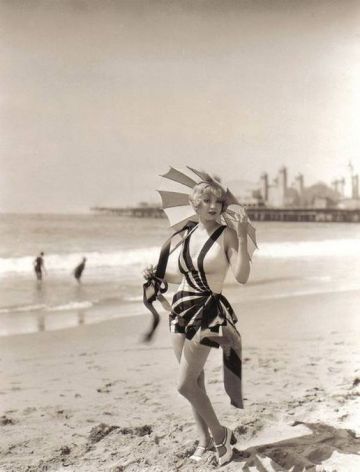
America in Color
The Smithsonian Channel is releasing a series of documentaries about American history, using lots of era footage mewly colorised. Every episode is a decad, spanning from the 1920s to the 1960s. The first Episode about the 1920s as just being aired. Unfortunatley, because I like outside the US, they won’t allow me to see but a teaser of it, but if you can, do have a look. It looks great.
“The 1920s was a decade of unprecedented change for America. Soldiers returned from war. Well-paid jobs were plentiful. Women cast aside “proper behavior,” and the Jazz Age erupted. It was an era of vibrant times and colorful characters, but for nearly a century, many have only seen it in black and white, until now. For the first time, we present the Roaring ’20s in color, from Ford’s assembly line to Charles Lindbergh’s transatlantic flight and from speakeasies to New York’s Wall Street, before and after the crash.”
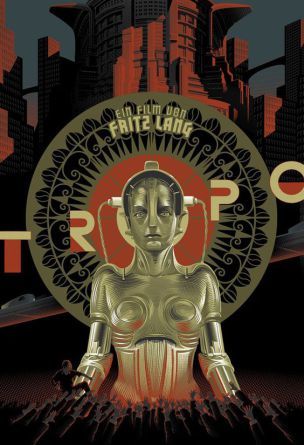
The History of Dieselpunk I: Proto-Diesel
Piecraft is a dieselpunk theorist who has written about the genre at Wikipedia and for the Gatehouse Gazette. The darker, potentially post-apocalyptic side of dieselpunk is named “Piecraftian” in recognition of his contributions to the genre.
In this article he addresses both the way dieselpunk came into being, its relation with Steampunk (which is often considered a bigger brother of Dieselpunk) and the very first influence on the genre, dating back from the actual diesel Era.
This is one of the best articles I’ve read on the subject. Not many people address the genre with this kind of insight, not even inside the dieselpunk community. To me, there’s more to Dieselpunk than the mere aesthetics, and this article splendidly proves it.
Theme Month! July 2017: It was a dark and stormy night…
Yes, Fritzl is inaugurating a new month of silent film reviews and it looks gorgeous. I can’t resist a theme like that, can you? Cant’ wait to read the reviews, but in the meantime, like me, you can kill the time reading the old reviews. always well worth it.
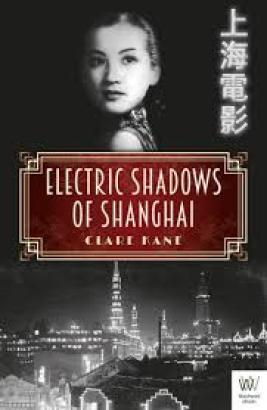
Electric Shadows of Shanghai by Clare Kane
It’s 1931 and British diplomat William Graves and his wife, Amelia, are flung headfirst into the enticing, neon-lit streets of Shanghai. As Will helps to maintain the fragile peace between China and Japan, Amelia, alone in a foreign city, seeks solace with a Russian ballet troupe that are more than they seem. Whispers of protest, revolt, even war, buzz through the city as Will is tasked with rooting out Communist propaganda that could push tensions over the edge into war. But the city’s streets hold other intoxicating allures. Will falls into a deep obsession with Feifei, a beautiful silent film star, who is desperate to escape the volatile city and sees Will as her only chance at freedom. As Amelia starts to sense Will’s betrayal and the personal and the political begin to blur, will they lose themselves in the electric shadows of Shanghai?
Vaudeville Wars: Book Review
In the 1920s, the world of Vaudeville was waning, but it was still a fascinating world, full of very peculiar, very specific traditions and attitude. Mary Maley tells us a bit abotu it while reviewing a book about the subject. She focuses in partiuclar on Keith and Albee, who worked hard to make vaudeville – that was traditionally considered quite the bawdy show – a family friendly kind of entertainment.
Not something that I expected.
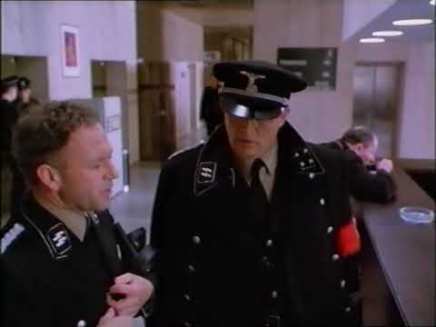 Fatherland by Robert Harris: Book Review
Fatherland by Robert Harris: Book ReviewAfter years that I had it on my TBR pile, I’ve finally read Fatherland. I can say I had been meanign to read it since it came out. I still remember reading the newspaper article when it first came out.
There will be a Thursday Quotables about it, of course, but I can say here that… honestly, I wos expecting a bit more.
Anyway, of course I browse around for articles and infoa botu it and I stumbled upon thsi one, which is pretty interstign and adds soem info that helped me understad the novel a bit better. For example, I didn’t know it was originally meant to be an essay, but this explains quite a few things.
Anybody read this?
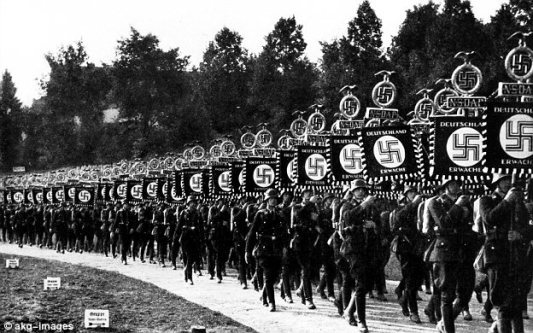
The Growing Role of the SS in 1930s Nazi Germany
And so of course I became curious of what the organisation of the Nazi police truly was.
We all know these terms: SS, SA, Gestapo, but do we really know what they meant? I for one didn’t, really. I always feel unconfortable reading about this part of history, but I aware we must knwo and remember. Thsi was a highly organised form of police, and sometimes I wonder whether the high level of organisation help dehumanise them and the people they policed upon.
Richard III
The Diesel Era encompasses both World Wars, so – maybe naturally – many dieselpunk stories and renditions are involved with one or the other of the Wars. I understand this has proved to be quite controversial, especially in the US, but it makes for some intense stories and retelling.
In 1995 Shakespeare’s Richard III was filmed as set in a fictitious Third Reich-like world. I haven’t seen the film yet, but I must admit the trailer makes for an outstanding impression.
Sarah Plugs Her Own Stuff
Recently I decided that I should be more active outside of my blog and try to get people to know my work and my book a bit better. Who knows? They might decide they like it and buy it. So here’s what I’ve been up to this last month. There’s a bit of everything, guest post, reviews, interviews, spotlights. I don’t want you guys to miss anything.
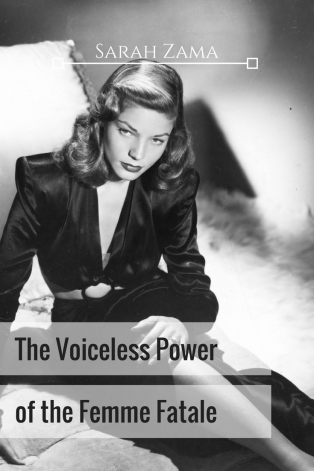 21 June 2017 – Give in to the Feeling by Sarah Zama – Book Review – Whispering Stories
21 June 2017 – Give in to the Feeling by Sarah Zama – Book Review – Whispering Stories
Always exciting to get a review.
“The book is a quick and easy read, and I read it in one sitting. It had enough action to keep me hooked, and a well thought out storyline that naturally flowed, and didn’t feel forced.”
23 June 2017 – The Object of Desire: The Voiceless Power fo the Femme Fatale – Sue Vincent’s Daily Echo
I really enjoyed writing this guest post. It ties up nicely with the AtoZ Challenge theme of this years and it’s about one of my favourite topics. Even during the challenge, the posts about the film noir ‘characters’ were my fevourites.
24 June 2017 – Give in to the Feeling by Sarah Zama – Megan Morgan Blog
I met Megan during the AtoZ last year. She writes spicy supernatural romances, sometimes with a SF inclination. She regularly blogs about the art of writing, good stuff, guys.
26 June 2017 – Indie Author Friday: Sarah Zama #IndieAuthor #dieselpunk #paranormal @JazzFeathers – Teri Polen YA author
So i’ll admit it, interviews are fun. And Teri’s questions were really inspiring and ifferent… well, most of them. I really anjoyed writing this interview.
And so, this is it for this month. We’re heading towards the deep summer months, so expect some light stuff in the next couple months… if you are aroudn to read my blog, that is, though I sure wish you to be somewere on a sonny beach. Expects lots of books and some fun stuff. Let’s charged for starting a new season in September!
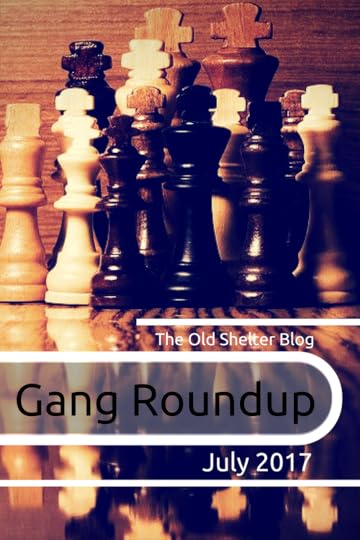
The post Gang Roundup – July 2017 appeared first on The Old Shelter.
June 30, 2017
Liebster Award – June 2017
My thanks to my fellow blogger Andrea Lundgren for thinking about me as worthy of the Liebster Award. It’s always a great honour to receive an award from a fellow blogger. It’s a thrill that I always feel I should acknowledge by accepting the award. And let’s be honest, it’s nice to brag about ourselves every now in a while.
Andrea maintains a blog about the writing craft and if you haven’t visited it yet, you sure should do it right now! Then… you know… remember to come back for my acceptance post. You’ll remember, will you?

The rules are as follows:
Say thank you to the person who has nominated you for the award.
– Answer the 11 questions the person has asked you.
– Nominate 11 people (comment on their blog to let them know).
– Ask the people you have nominated 11 questions
Andrea’s questions:
What is your favorite book, or if you prefer, your favorite author?
Since I’ve talked about my favourite author, Sherman Alexie multiple times, I’ll go with my favourite book. The favourite book is a tricky matter, because of course it changes over time, as we read more books. My most recent favourite book is The Wolf in the Attic by Paul Kearney.
I stumbled upon it on NetGalley and I almost decided not to read it once I downloaded it, I’m not even sure why. So happy I did read it, because I ended up absolutely loving it. And no surprise, I mean, it’s set in the 1920s, it has a bunch of very crafty Tolkien references (professors Tolkien and Lewis even appear as characters in the story), and it’s a perfect mix of historical events and fantasy visuals, with a deep symbolic meaning.
It is indeed the kind of story I want to write. No surprise I loved to read them too.
Is there a country you have always wanted to visit, and if so, where?
I’ve always wanted to visit Iceland. I still hope one day I’ll be able to go. It is such a beautiful country, still so wild, so primordial. I love the sceneries.
And besides, I’ve always been fascinated with the history and especially the mythology and legends of the northern European countries. And the language! Icelandic has the most amazing sound. Of course such a language would produce such epic stories!
What do you enjoy about blogging, and how has your blog changed in unexpected ways since you started it?
What I most love about blogging is the community. I realised this in the very early days of my blog: so many friends and fellow bloggers supported me and advised me just because I was a newbee and I was in need of help.
I try to do he same now. Of course I’m no expert or anything, but I like to give back what I’ve received. It really doesn’t cost anything and it may make a small different for the person on the receiving end.
Community is also what has made this blog what it is. I’ve often told this story, still I don’t know whether I’ve ever told it here. When I first started blogging, I decided I would never blog about the 1920s. Yes, it was (as still his) a subject I’m very passionate about, I had already researched extensively for my stories, but I didn’t feel I was an expert (I still don’t). I thought I would never be able to write anything worthy on the subject.
Then in 2015, one year after starting my blog, I decided to take part in the AtoZ Challenge. Now we’re talking about writing 26 blogs, possibly interconnected, one per day, for a month. I needed a plan, and I needed something to blog about that I could cover in a month. I didn’t have much choice, I decided to go with a 1920s theme.
Believe me when I tell you I was shocked when I realised people actually liked reading these articles about 1920s life. I truly didn’t expect it.
And it made me think hard. Maybe, in spite of what I felt, my blog was supposed to do just that. It was supposed to be devoted to share what I’ve learned during my research and to confront with other people who are equally passionate on this subject.
Never regretted it.
4.What is your favorite time period to read or write in, and why?
Well… guess what!
The 1920s is another passion I discovered by chance. Ghost Trilogy, the series I’ve been researching for, was initially supposed to be set in the 1930s. I did start researching the Great Depression, but when I discovered one element in my story was going to be anachronistic if set in the 1930s, I was forced to move the story back one decade.
And so I discovered this fantastic time in history.
Sure, I suppose it can be said of any past time that it relates to our own times one way or another, because I firmly believe history can teach us a lot more than we think about ourselves, but the 1920s are particularly relevant to us, today, in my opinion. It was a time of huge change, involving all aspects of life, happening at an unprecedented speed. Exciting as it was, it was also very scary, and I think this is exactly what is happening today. It’s not simply the change, it’s how fast it’s happening that scars us, because we can’t keep up with it.
The 1920s also gives me hope. Scary as it might feel now, like in the 1920s, this time will pass and we’ll be better off afterward. In the 1920s, elder people worried about young people becoming immoral and superficial. About the old ways fade and leave nothing worthy to replace them. About machines crashing down everything that used to be good and familiar. And sure, the world did change in that direction, but the apocalypse people expected never happened. What looked like chaos was actually the beginning of a new way of life. The life we live today.
What is your favorite time period to watch on film or television, and why?
Same as above. In addition to everything else, the 1920s was a time of stunning visuals. I’ve just visited an exposition about 1920s Art Deco in Italy and I’m super excited. I saw so many beautiful things in that exhibition, I came out elated.
The 1920s was a pivotal time in the history of Italy. It was the time where industry started to be important and changed the way we lived and worked. In particular (and this is the core message of the exhibition) we tried to find ways to transfer the near artistic practice of craftsmanship into industry-produced items. That was the beginning of what we now call Made in Italy, which to us – far from being just a label – is a way of feeling, thinking, living and working.
How do you find inspiration?
Jeez, I hate this question! How do you find inspiration? That’s like asking, how did you find that 50 euro note on the sidewalk?
I know this may sound not very professional, but I think inspiration is quite random. You never know when it’s going to happen, or what it will bring you. Inspiration is really something you can’t control, in my opinion.
But you can encourage it. By being curious, by exploring, by researching. Not just because you amass info – and that’s a part of what produces inspiration, anyway – but because it makes you accustomed to think, to ponder, and it helps you connect the dots. Dot-connecting is probably the most effective way to encourage inspiration, at least in my experience. You acquire the knowledge, you ponder it and somehow, you’ll start making connections. You’ll notice a coincidence, or a repetition and that will start you thinking at the possible explanations or consequences. Than, inspiration may very well happen.
In his film The Business of Fancydancing Sherman Alexie said it in the most beautiful way.
What started you down the road of writing and blogging?
I started writing stories when I was nine. I’m honest when I say I don’t remember (I don’t know) why I started.
But blogging, I started three years ago and it was again one of those serendipitous things. I had never thought I’d ever had a blog. I’ve always been convinced I didn’t have anything interesting to say.
But as the time of publishing my stories approached, I started reading about building an author platform, and it became clear very quickly that I couldn’t possibly do it without a blog, a place on the internet which I could call home.
I was still very reluctant. What was I ever going to post on my blog? I had no clue!
Still, I needed to do it, so I built my blog and I started posting articles. Those articles are nearly all inaccessible now because honestly, they were unreadable and not very interesting. I learned a whole lot about blogging, the AtoZ Challenge was particularly enlightening there. And the sense of community! That’s what finally won me over. Today, I’d be very sad if I should be forced to stop blogging and really I’d do whatever I can to keep going.
How do you keep yourself motivated?
Once again, I should say community. Sharing is one of the most motivating forces I know. When we are part of a community, we can’t wait to share what we do and what happens to us with our friends, and at the same time, we can’t wait to hear from them and to help when we can.
It gives you a sense that it matters, I don’t know how best to explain it.
What four people would you invite to a dinner party (contemporary, historical, or fictional)?
May I go with fictional?
Waylander (author David Gemmell) because he was one of my first book crashes, so I suppose I won’t ever be able to let him out. He’s the classic kind of brooding, dark anti-hero, but he has a lot of good qualities he doesn’t like to advertise.
Thomas Builds-the-Fire (author Sherman Alexie) who’s one of my favourite characters at the moment. Alexie has many characters named Thomas Builds-the-Fire in his stories and although they are never exactly the same character, they all have common characteristics: they are good-hearted and funny, witty and wise if quite a bit naïf, and very involved with tradition. I think we’d get along perfectly.
Anna Francis (author Paul Kearney) who’s the essence of the world of today. A refugee who has integrated in her new homeland, if not to a point to forgetting where she comes from, she feel perfectly at ease in the old and the new life. There is no contradiction to her in belonging to both. I’d like to learn lots of things from her.
Galadriel (author J.R.R. Tolkien). People usually think at Galadriel as she appears in the Lord of the Rings and never realised that at that point she has lived for millennia and she has seen and done a buch of ‘interesting’ things. Prof. Tolkien is often accused to have very few female characters in his stories. Which is true, but let me tell you that his few female characters are among the most complex and nuanced I’ve ever read.
Do you think these is all too brooding characters? Well, people let surface all manners of unexpected sides of their personalities at parties.
What is your favorite kind of weather?
Believe it or not, I like rainy days. Which may explain why I felt so at home in Ireland.
Far from feeling lonely and depressing, they feel inspiring to me, though why? I really don’t know.
And yes, rain may be annoying if you have to go around (for example to work). Going around with an umbrella, how cumbersome is that? That’s why, if it isn’t really pouring, I often don’t use it. I’ve lived more than a year in Ireland, and I never own an umbrella while I was there.
If you could have any pet, real or fictional, what would it be?
Actually, I already have the most amazing pet I could wish for, my chubby cat Apache.
My nominees
Cheryl @ Impromtu Promptlings
Margot @ Confessions of a Mystery Novelist…
Shilpa @ A Rose Is A Rose Is A Rose
Irene @ Pompulsively Quirky
Jack @ Riding the Blimp
My questions
What is the one reason why you like that author so much that when a book of his/hers comes out you automatically buy it?
Do you read in just your mother tongue?
Do you think reading in the language a story was written in is the best thing? If yes, why? If not, why?
Do you read in a preferred genre? Which one? Why you prefer it?
Do you ever go exploring genres you don’t normally read?
Have you ever being part of a reading group? If yes, how was the experience?
How do you feel about all the new formats available to readers?
I’ve meet people who basically only read in one format (for example only ebooks) Do you? Would you?
Today, getting in touch with our favourite authors is a lot easier than before. Have you ever taken advantage of it?
Turning books into movies. This most upsetting practice.
Would you ever write the novel you want to read?

The post Liebster Award – June 2017 appeared first on The Old Shelter.

